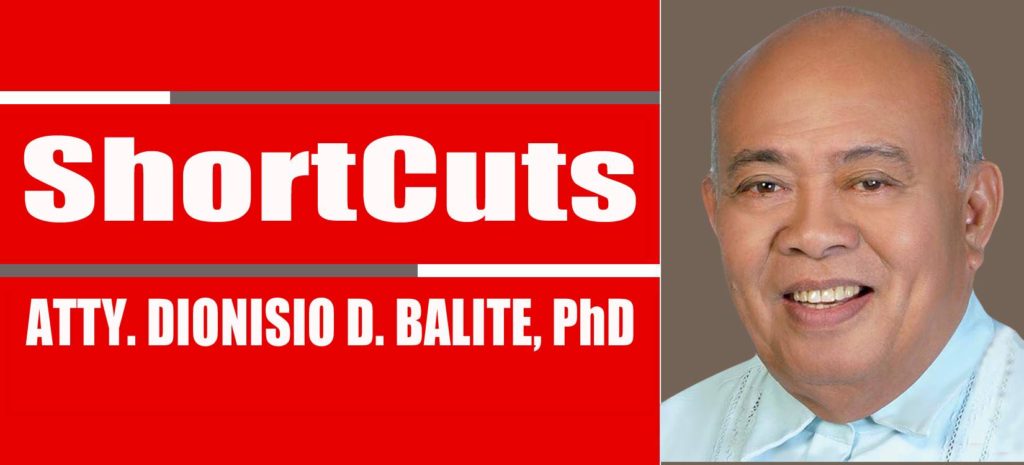
WHY are financial assistance given by our national government to marginalized members of society paid in cash?
Is the practice duly clothed with legal mantle to justify such a procedure?
If the answer to the second query is in the positive, could there be a chance that this procedure be improved in such a way that the same should not appear as a dole out from government?
The foregoing queries are, to Short Cuts, indeed intriguing and very regrettable to observe!
Why?
Is it because of the financial condition of these people, they are easy recipients of financial aid from the national government? And, what if these people are in that financial condition because of their own making? Is government still obliged to finance them?
In the contrary, why is government closing its eyes on those citizens working hard for their living? And not even disturbing any agency of government for their livelihood?
Foremost of all, why are they not also given equal benefits if only to prove that government is for all – the busy and the lazy?
“Life is what we make it”, we were told during our High School days in our subject in Philippine Literature.
Our high school teacher was very clear in exhausting his means in projecting the lesson that “one must work hard for his future in life”. “Without any work, a person has no future to speak of”, he was always emphasizing.
From that lesson, a person must be engaged in any endeavor for his future and the future of his family.
Simply put, without any work, a person has no future!
So, where is the logic in government’s dole out for the marginalized members of society?
If they are not helping themselves, and why help them?
But, Short Cuts is always guided by the Biblical saying, “No Saint has his past; nor a sinner of his future.”
As a consequence, therefore, Short Cuts has to suggest to the present national leadership, most specifically the two lawmaking bodies just to go on with the present system of assistance. BUT, with a modification.
And, the modification?
The financial assistance must no longer be in the form of a DOLE OUT. Let the recipient work for it. Let him clean the municipal streets or plazas equivalent to the number of pesos he ought to receive.
In that way, the recipient received the amount no longer as a DOLE OUT. He had already worked for it.
Therefore, the recipient had ceased to be a mendicant.

